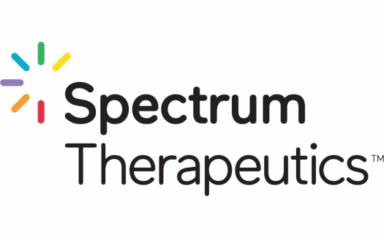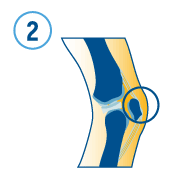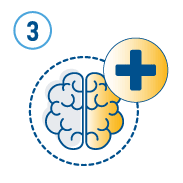Since 2001, medical cannabis has been a legal treatment option in Canada for certain health conditions, including arthritis. While cannabis can’t cure arthritis or slow disease progression, some people report that it helps to alleviate their symptoms.
“Medical cannabis” refers to any products made from cannabis or its active ingredients intended for health purposes. In Canada, the supply of medical cannabis is controlled by the federal government, which regulates production and distribution. While non-medicinal cannabis is now legal in Canada and may come from similar or the same plant sources as medical cannabis, the Arthritis Society recommends obtaining a document for medical cannabis from an authorized healthcare professional. Self-medicating with recreational cannabis is not a safe substitute for supervised care by a doctor or nurse practitioner.
In accordance with the guidelines of the Canadian Rheumatology Association, medical cannabis should not be used to treat rheumatology patients under the age of 25.
Cannabis is a flowering plant that produces chemicals called cannabinoids, which can be used to treat the symptoms of a number of conditions, including arthritis. These chemicals interact with our body’s endocannabinoid system that can affect pain, inflammation, immune function, appetite, heart function, memory, and mood.
While medical cannabis can’t cure arthritis or slow disease progression, there are studies that demonstrate it can help relieve arthritis pain as well as address sleep issues and anxiety.
| Medical Cannabis | vs. | Recreational Cannabis |
| Used to address symptoms of various health conditions | Used for non-medicinal purposes | |
| Dosing can be indicated so that there is little to no euphoric effect (“high”) | Generally used for euphoric effect (“high”) | |
| Requires medical document (authorization) | Not a safe substitute for supervised care | |
| Accessed directly from a Health Canada Licensed Producer or grown by consumer | Accessed from an authorized recreational cannabis retailer or grown by consumer |
Contributors
This resource was reviewed in November 2019 with expert advice from:
Dr. Carolina Landolt-Marticorena, MD, PhD, FRCPC
Rheumatologist
Summertree Medical Clinic
Runnymede Healthcare Centre
Scientific Advisor
MediPharm Labs
CBD and THC are the key active ingredients in medical cannabis.
 |
CBD, or cannabidiol, is a non-euphoric chemical, which means it will not make you feel “high” and can even help counteract some of the negative effects of THC when they are used together. CBD has been used to treat inflammation and chronic pain, along with managing anxiety and insomnia. |
 |
THC, or tetrahydrocannabinol, is the chemical that can cause a “high” or intoxicated feeling when taken in sufficient doses, but in small doses it can be helpful for some symptoms. THC can help decrease pain, anxiety, tension and nausea. When taken in higher doses, it can heighten sensory perceptions, alter sense of time, and impact motor control. High doses of THC may also bring feelings of anxiety and paranoia for some people. |
|
Medical cannabis products can contain primarily CBD, primarily THC, or a balance of the two. It’s recommended that individuals with arthritis start with CBD-dominant products and introduce THC in small amounts if needed. |
Medical cannabis can be ingested, inhaled, applied topically as a cream, or dissolved as a spray. Depending on the form of medical cannabis, the rate at which you experience its effects can vary.
| Cannabis Oil: Cannabis oil is diluted with a carrier oil, such as sunflower or avocado oil, and is used with a dropper or put into a capsule. The oil can be mixed with food or drink or placed directly under the tongue, where it is held for one minute to facilitate transfer into the blood stream. |
|
 |
Sprays: Sprays are applied under the tongue and absorbed into the bloodstream. |
 |
Topical Creams: Topical creams can be applied directly on the skin and are absorbed into the blood stream. Topical creams can have pain-relieving effects at the site of application. |
 |
Cannabis-infused foods: Also known as edibles. These include any food products created using cannabis, such as items made with cooking fats infused with cannabis (i.e. olive oil, coconut oil, butter). These are processed by your body’s digestion system and take up to 2 hours to reach maximum effect. The effects of edible cannabis also last longer. |
| Inhaled-vaporizers, e-cigarettes, joint: Dried cannabis needs to be heated in order for CBD and THC to take effect. Vaporizers and e-cigarettes use heating elements that can activate the chemicals. Smoking medical cannabis is not recommended. |
If you are using medical cannabis for the first time, it’s recommended to start with a CBD-dominant product at the lowest dose, and gradually increase your dosage until your symptom needs are met. Capsules and oil make it easier to accurately track dosage and find the lowest dose for symptom management.
| For cannabis-infused foods, it’s important to exercise caution and take small amounts with lower doses of THC, as the effects of edibles can be stronger than other forms of cannabis and may result in more pronounced side effects. |
This tracker will help you monitor the effects of your medical cannabis treatment and communicate with your doctor about what’s working and what isn’t:
When taken in sufficient doses, THC has side effects that impact sensory processing, cognition and fine motor coordination. It can also cause anxiety and panic attacks in some people.
| People who are pregnant, planning to become pregnant or are breastfeeding should not use cannabis. | |
 |
The federal government has established legal limits for blood THC content. Individuals should not drive after using cannabis. The amount of time that is needed before driving depends on the method of administration and the THC content of the cannabis that has been used. |
 |
Cannabis use can be harmful for individuals with a personal or family history of psychotic illness, substance use disorder or suicidal thoughts. |
 |
People under 25, individuals who have had a substance use disorder, and those who use THC frequently are at a higher risk of developing a cannabis use disorder (cannabis addiction). |
Important Notes:
- While medical cannabis is legal for use in Canada with a physician’s order, medical cannabis is not a Health Canada-approved treatment. To date, there is limited clinical evidence on the relative benefits and risks of medical cannabis on the treatment of arthritis.
- People under the age of 25 are at an increased risk of adverse effects from cannabis use, including cognitive problems from THC-dominant products. The Canadian Rheumatology Association advises against the use of medical cannabis by rheumatology patients under the age of 25.
- The information found here is for educational purposes only. It is not intended to substitute the advice of a physician. Consult your physician or other relevant health professional for specific information on personal health matters to ensure that your individual circumstances are considered.
- As of October 17, 2018, recreational cannabis is legal in Canada. Self-medicating with recreational cannabis is not a safe substitute for receiving medical cannabis from a licensed seller under the direction of your healthcare provider.
- The Arthritis Society is a leading advocate for research into the use of cannabis for medical purposes, and for the needs of people who use cannabis for medical purposes. For more information, visit our medical cannabis advocacy page.
This guide is intended for adults only. The Arthritis Society does not endorse or recommend medical cannabis.
This guide has been created for educational purposes to provide information about medical cannabis as a potential treatment option for arthritis symptoms.
Medical Cannabis: A Guide to Access PDF
The Cannabis Regulations – specifically Part 14: Access to Cannabis for Medical Purposes sets the rules for how patients can access medical cannabis in Canada. Cannabis Laws and Regulations set the rules for recreational cannabis access and use in Canada.
For people living with chronic pain, the options for medication to assist with pain management are limited, and each has its drawbacks. For these people, medical cannabis offers a potential alternative to traditional pharmaceuticals such as NSAIDs, acetaminophen and opioids. However, there are many unanswered questions about the use of medical cannabis to treat arthritis symptoms, and physicians have received no formal guidelines about when and how to authorize cannabis for medical purposes.
To address this gap, the Arthritis Society is funding research into the use of medical cannabis for treatment of arthritis symptoms, and is leading a coalition of voices from across the Canadian health care sector in calling for more investment in medical cannabis research. At the same time, we are working to ensure that the process by which Canadians access this treatment option is fair, reliable, safe and affordable.
The Arthritis Society has been involved in discussions and research around medical cannabis as a treatment option for arthritis symptoms. The videos and resources below provide highlights and insight from this past work.
The Science of Medical Cannabis for Arthritis
Quebec Forum on Arthritis 2016
Two thirds of Canadians taking medical cannabis are doing so to help ease the pain of arthritis. What does this mean for you? Join Dr. Jason McDougall (Dalhousie) and Dr. Mark Ware (McGill) to discuss the science and clinical practice of using medical cannabis for arthritis: what it does, how you might access it through your doctor, what some of the questions are, and how research will seek to answer those questions.
What people with arthritis need to know
Dr. Jason McDougall of Dalhousie University, who is embarking on a three-year investigation of medical cannabis, answers your commonly asked questions.
Clearing the Air – Roundtable report on research priorities for medical cannabis
Clearing the Air: Roundtable Report
Summary Report of the Medical Cannabis Research Roundtable, urging Federal investment in medical cannabis research and clinical trials.
This resource was made possible through an educational grant from Spectrum Therapeutics.

Talking to your Doctor about Medical Cannabis Use for Arthritis
When considering medical cannabis as a treatment option for arthritis, an important step is talking with your doctor. “Medical cannabis” refers to any products made from cannabis or its active ingredients intended for health purposes. While cannabis can’t cure arthritis or slow disease progression, some people report that it helps alleviate their symptoms of pain, inflammation, and anxiety. Click the cards below to learn helpful tips and information on how to get started on having clear conversations with your doctor.
- Talk to a doctor that you have an established relationship with – someone you would be comfortable speaking with about other difficult topics
- Come prepared for your conversation:
- Talk about the specific symptoms or issues you want to address, such as joint pain or difficulty sleeping
- You can use a reputable source, like the Arthritis Society’s resources, as a starting point for the conversation
- Plan any questions you want to ask your doctor about using medical cannabis ahead of time
- If you have tried cannabis before:
- Share your experience with your doctor and what you found helpful, if anything
- Ask about the benefits and drawbacks of medical cannabis use for arthritis
- Be prepared to discuss safe use of cannabis
- Your doctor may not be ready to authorize medical cannabis to patients in general. If not, they should be open to the conversation and ideally refer you to someone with the required expertise
NOTE: Medical cannabis is not meant to replace other medications. If your doctor determines it might be a good option for you, they will discuss how you can use it to treat symptoms alongside your existing treatment plan.
 |
 |
 |
| Review of symptoms and medication history | A physical exam specific to the issue being addressed, such as pain | Contraindications: History of psychosis, allergies, pregnant and/or breastfeeding |
To access medical cannabis, you will require a medical authorization document from your doctor.
NOTE: A doctor may not feel comfortable authorizing or monitoring the use of medical cannabis for patients in general. In this case, it is reasonable for the patient to ask for a referral to a physician or clinic with more expertise in this area. However, medical cannabis is not a suitable treatment option for everyone. If a doctor is comfortable authorizing medical cannabis in general but not in your particular circumstances, it’s important to understand their reasoning and why medical cannabis may be unsafe or inappropriate for you.
Reading the document
A medical cannabis authorization document is NOT a prescription. It will include:
- Your information, including name and date of birth
- Healthcare provider’s information, including name, contact information, and license number
- Daily quantity in grams/day
- Period of use (cannot exceed one year)
- Healthcare provider signature
There is no defined effective dose for medical cannabis. This is because dosage and effectiveness will vary significantly between people. Specific guidance, such as CBD amount, THC percentage, or oil vs. dried cannabis should come from your authorizing doctor. As there are no firm guidelines on dosing, most physicians will introduce medical cannabis at low doses and reassess for benefits and possible side effects. Medical cannabis is not effective for everyone – increasing the dose may not have a greater effect.
 |
 |
|
| Doctors will often talk about the main components of medical cannabis: CBD and THC | CBD, or cannabidiol, is a non-euphoric chemical (will not make you feel “high”) | THC, or tetrahydrocannabinol, can cause a “high” feeling, but may be helpful in small doses |
 |
||
| Medical cannabis products may be CBD dominant, THC dominant, or a mix of both | Doctors may start with a CBD preparation and add THC in small amounts if appropriate |
NOTE: A very low dose of THC can be helpful without providing psychotropic effects. Your doctor can help recommend the best method of delivery and dosage to achieve helpful effects.
Remember to talk to your doctor about the specific symptoms you want to address with medical cannabis. Medical cannabis will not treat your arthritis directly or replace the medication you take to manage it.
- Can medical cannabis help with my arthritis pain?
The components of medical cannabis may help promote the release of natural pain-relieving chemicals in the body, complementing other pain management techniques - Will medical cannabis help me sleep?
Cannabis may help reduce sleep disturbances. Orally ingested cannabis oils are longer-lasting than inhaled products, which could help with challenges related to remaining asleep. - Can medical cannabis help with my anxiety?
The CBD component of cannabis may be helpful in reducing anxiety, but higher doses of THC can cause increased anxiety - Will medical cannabis increase my appetite?
Research suggests that THC can stimulate the appetite, and may help with nausea and calm the digestive system
- Medical cannabis is not an appropriate treatment option for everyone. If your doctor feels it would be unsafe for you, it’s important to understand why
- Your doctor may delay authorizing medical cannabis when you’re starting new medications or have a new or evolving health issue
- Medical cannabis is usually a third-line treatment for arthritis symptoms. If you haven’t yet tried standard arthritis treatments, your doctor may suggest these approaches first before trying medical cannabis
- If your doctor is not comfortable authorizing medical cannabis in general, you can ask for a referral or seek the advice of a doctor with greater expertise in this area
This resource was made possible through an unrestricted educational grant from:

Contributors
This resource was reviewed in November, 2020 with expert advice from:
Carolina Landolt-Marticorena, MD, PhD, FRCPC
Rheumatologist, Summertree Medical Clinic & Runnymede Healthcare Centre
Scientific Advisor, MediPharm Labs

